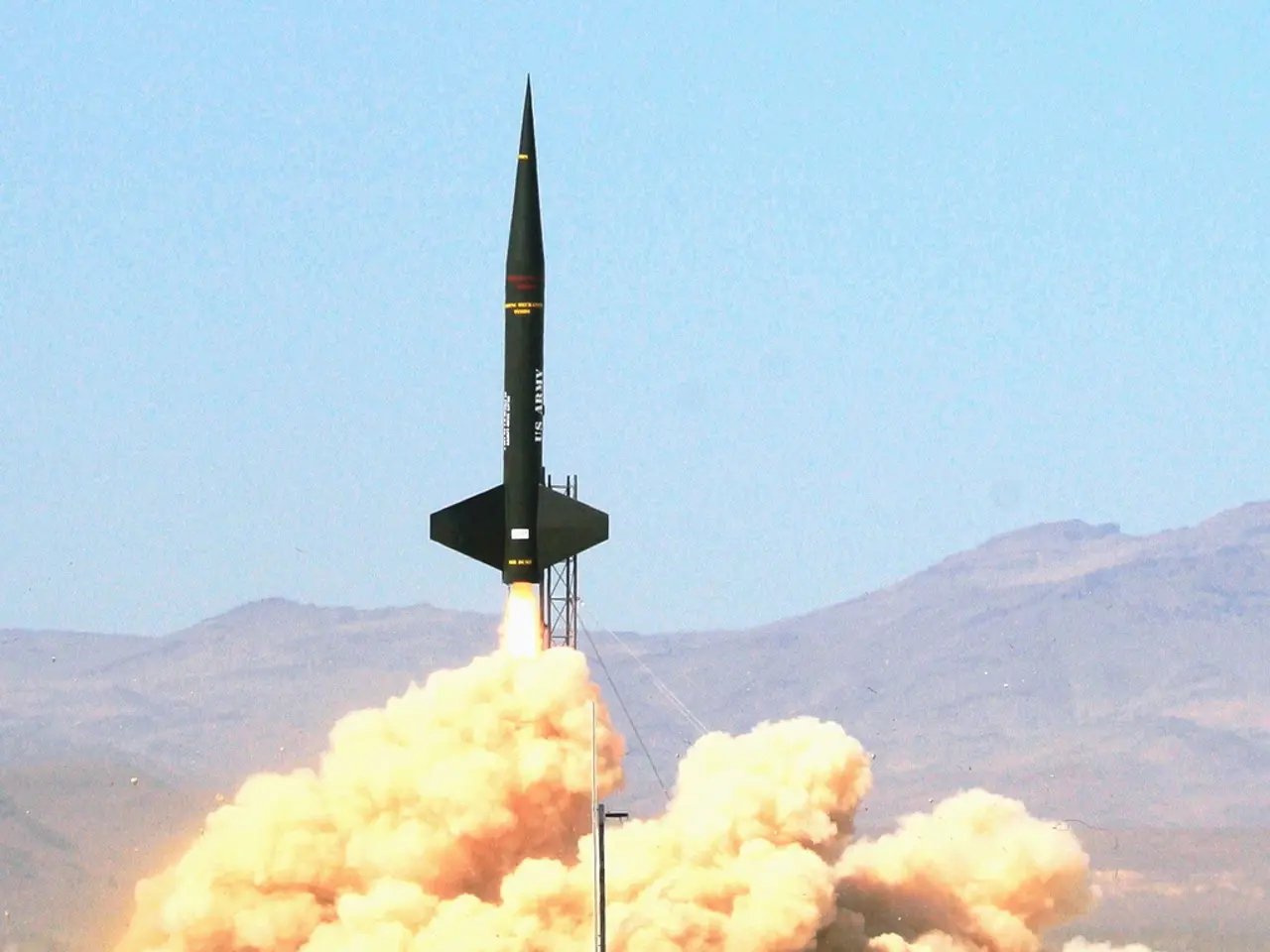US President Trump suggests potential air support for a security assurance to Ukraine
The future of Ukraine's security, NATO membership, and the status of occupied territories remains a contentious issue, with stark divisions emerging among the U.S., European allies, and Russia.
United States and European Allies
The U.S. and its European allies have pledged their support for Ukraine's sovereignty and security. However, they have ruled out immediate membership for Ukraine in the Western military alliance, NATO. Instead, they aim to prevent further Russian aggression through reassurance forces and security arrangements that mirror some NATO protections, but fall short of formal membership.
Western leaders, including those from France, Germany, and the UK, have publicly committed to deploying reassurance forces in Ukraine once hostilities cease, and have rejected any limitations on Ukraine’s military partnerships or capabilities.
Despite this support, there is growing skepticism and declining optimism within Ukraine about quick NATO accession. Public hope for membership within the next decade has dropped to about 32%. Nevertheless, Kyiv and NATO countries are deepening strategic alignment and pursuing interim security guarantees as a pragmatic step towards eventual membership.
Russia
Russia maintains a firm stance, demanding that Ukraine forgo any ambitions of NATO membership and asserting claims over all territories it currently occupies, primarily Crimea and parts of Eastern Ukraine (Donetsk, Luhansk). Moscow rejects the presence of any NATO troops inside Ukraine as part of security arrangements.
Putin’s administration views Ukraine’s NATO aspirations as a direct threat and has used territorial occupation as leverage in ongoing negotiations.
Occupied Territories
Russia insists on retaining control over the territories it occupies and demands recognition of these claims as part of any settlement. Ukraine and its Western partners reject any limitations on Ukraine’s sovereignty or military freedom post-conflict, emphasizing the restoration of Ukraine's territorial integrity and security guarantees to prevent renewed aggression.
In summary, the U.S. and European allies currently prefer robust security guarantees without immediate NATO membership, emphasizing Ukraine's right to self-defense and sovereign partnerships. Russia demands no NATO membership for Ukraine and formal recognition of its control over occupied territories. Ukraine itself seeks strong guarantees and eventual NATO integration but faces increasing doubts internally about quick accession.
Read also:
- Weekly happenings in the German Federal Parliament (Bundestag)
- Southwest region's most popular posts, accompanied by an inquiry:
- Discussion between Putin and Trump in Alaska could potentially overshadow Ukraine's concerns
- Massive 8.8 earthquake hits off the coast of Russia's Kamchatka Peninsula, prompting Japan to issue a tsunami alert.






